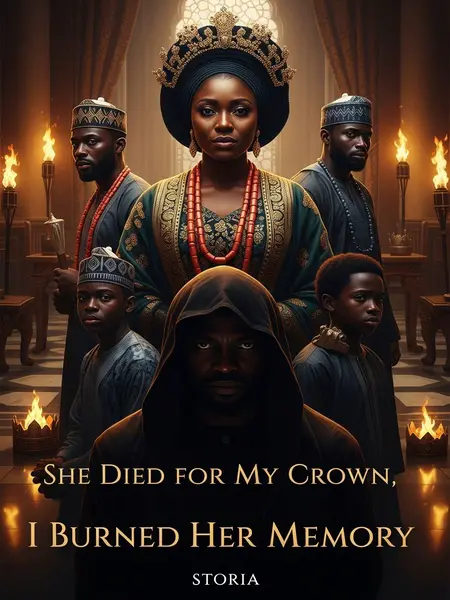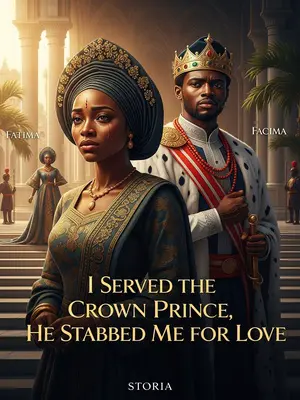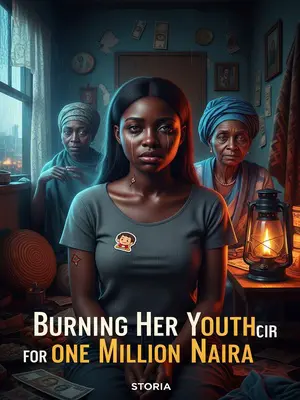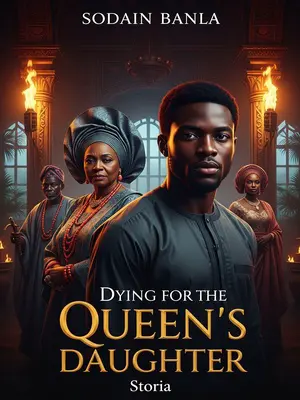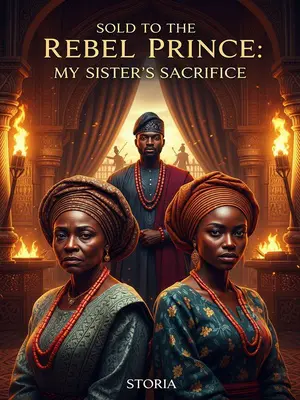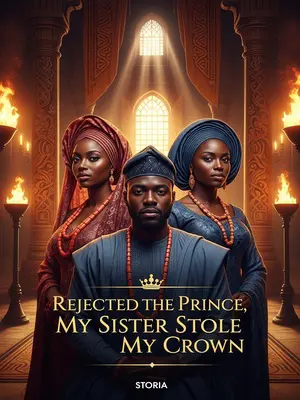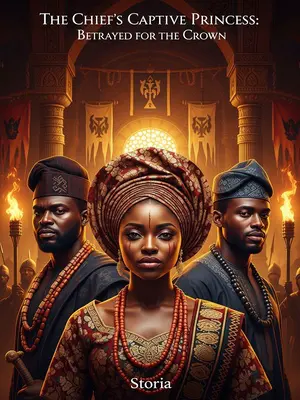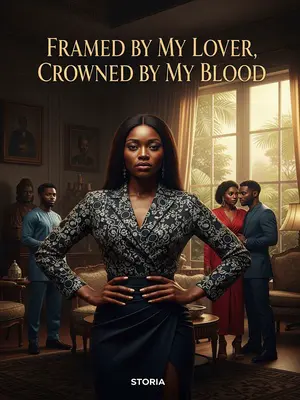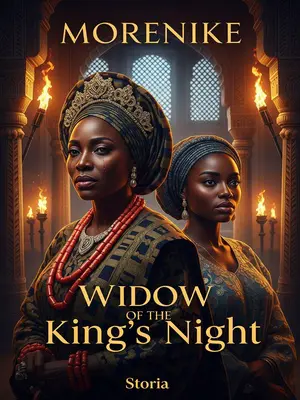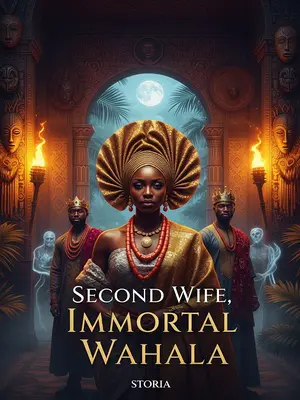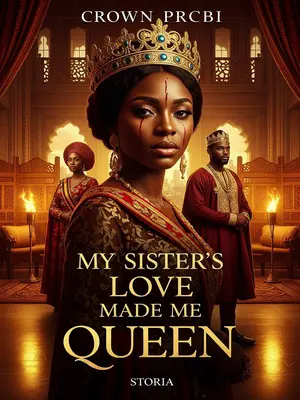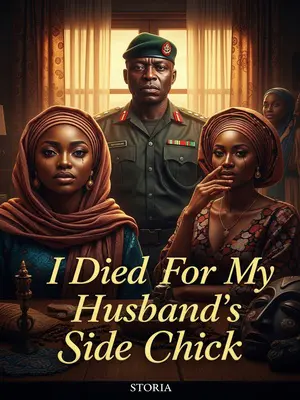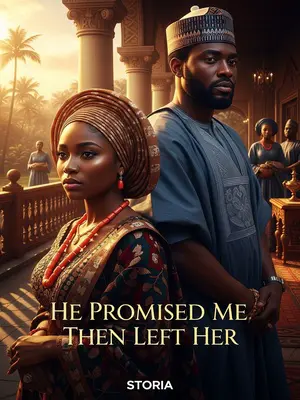Chapter 3: The Art of War
It was Chief Garba.
Chief Garba, the kingmaker, the one who never smiles unless there is profit in it. He alone had the nerve to lay hands on me, to stop my wrath from burning down the house.
The servants dared not say it, but there was only one person in the world who would dare lay a hand on me: Chief Garba.
They whispered his name in the corridors, as if speaking too loudly would call his spirit. Everybody knew: when Chief Garba moves, even the walls pay attention.
He no fit face me. He just send proclamation, posthumously conferring the title of Grand Matron on Ifeoma.
He stayed hidden, sending his words in gold leaf and red ink. Grand Matron—an honour meant to appease the dead, not the living. It was supposed to be enough. But for me, it was an insult.
I tore the proclamation to shreds with the gold brooch Chief Garba had once given me.
My hands shook, tearing the expensive paper. The gold brooch—a gift from old days when promises were sweet—became my knife. The shreds fluttered to the floor, a pile of broken dreams.
Palace maids knelt everywhere. The main hall was silent until Chief Garba arrived.
Their heads were bowed, faces hidden. No one dared look at me. The silence pressed in, thick as palm oil. Chief Garba’s footsteps echoed, measured and heavy, like a judge coming to pass sentence. Somewhere in the distance, talking drums beat a warning rhythm.
"Folasade, Ifeoma don die already. If you no satisfy, I fit still give am even higher honour."
His words were smooth, carefully measured, as if one more title could fill the hole left by Ifeoma’s death. He did not meet my eyes.
"If I kill Sade, then give Ifeoma Queen title posthumous, how you see am?"
Chief Garba said nothing. The silence stretched, heavy with meaning. Then, short and sharp, he replied, "You dey craze, Folasade."
I want make dem bury the two of them with am.
The words hung in the air, black and heavy. Let them join her in death. Let justice be swift and final.
"Impossible."
His answer was sharp, final. There are lines even Chief Garba would not cross, not for me, not for anyone.
"Fine."
I did not argue. My plans were my own. Sometimes, silence is the loudest threat.
My answer quick. Chief Garba no expect am; he look up at me, surprise catch am.
He blinked, unsettled. For once, I held the upper hand. Let him wonder what I would do next.
"What did you say?"
He needed to be sure. Maybe he thought the madness had left me. He was wrong.
I talk say 'fine.'
I repeated it, my voice steady. The calm before the storm.
I go do am my own way.
Some wars are fought in silence. Some revenge is slow, cold, and thorough. Let them watch me.
I forbade any memorial service or condolence tent for Ifeoma. None of them deserved it. Then I sent people to collect everything related to her.
No more weeping, no more fake mourning. Ifeoma’s name would not be paraded by those who betrayed her. I would gather every memory, every token, every scrap, and keep them for myself—or destroy them, if I wished.
Musa Danjuma held his cutlass and refused.
He stood guard over what was left, desperate. His eyes were wild, his voice hoarse. The world was slipping from his fingers, and still he clung to scraps of cloth and wood.
Sade knelt to the side, biting her lip hard, saying nothing.
Her silence was its own kind of defiance. She knelt, hands folded, lips bleeding where she bit them. She knew the game was almost up.
With just a wave of my hand, the attendants filed in, pinning Musa Danjuma down, his knees hitting the tiled floor with a heavy thud.
My people were swift, efficient. They pressed him down, ignoring his shouts. His knees cracked against the cold tiles, and a hush fell over the crowd.
Back then, when he wanted to marry Ifeoma, he had also knelt before me like this.
History repeating itself, but this time, no hope, no joy. Only grief and regret, painted in blood and tears.
He and Ifeoma bin dey run secret thing; I catch dem.
The memory was sharp as broken glass. He had been younger then, his pride not yet broken, his eyes full of hope. The council had watched, waiting for me to bend. But I held firm.
I no gree. Even though he dey close to Chief Garba, e impossible for am get council blessing for the marriage.
Not even Chief Garba’s influence could sway me. The old ways mattered more, and I was the gatekeeper.
At that time, I asked Ifeoma,
"If you marry am, you no fit come back."
Ifeoma cheeks flush small.
She stood there, shy but determined, the kind of courage that looks soft until you test it.
"Folasade, him talk say I go be him only one for this life. I wan try."
Her words were soft, but the weight behind them was clear. She wanted to believe in love, in second chances. She wanted to fight for her own happiness.
"Wetin if na mistake?"
I pressed her, wanting to protect her, wanting her to see the risks.
"Then make e be mistake."
She lifted her chin, meeting my gaze. Her stubbornness, usually hidden, flared up. She would rather risk ruin than regret.
Ifeoma fit look gentle, but she clever and stubborn—I know am well.
She moved softly, but her will was iron. When she made up her mind, not even thunder could shake her.
As she take strong head choose Musa Danjuma, na so she take strong head leave am.
It was her way. She gave everything, but when she decided to walk away, nothing could stop her. I should have remembered that.
When we were young, she used to tell me, "In the art of war, na mind dey win."
She would laugh, tapping her forehead. “No be muscle win fight—na mind, na sharp sense.” I used to tease her, but the truth is, she was right more often than not.
